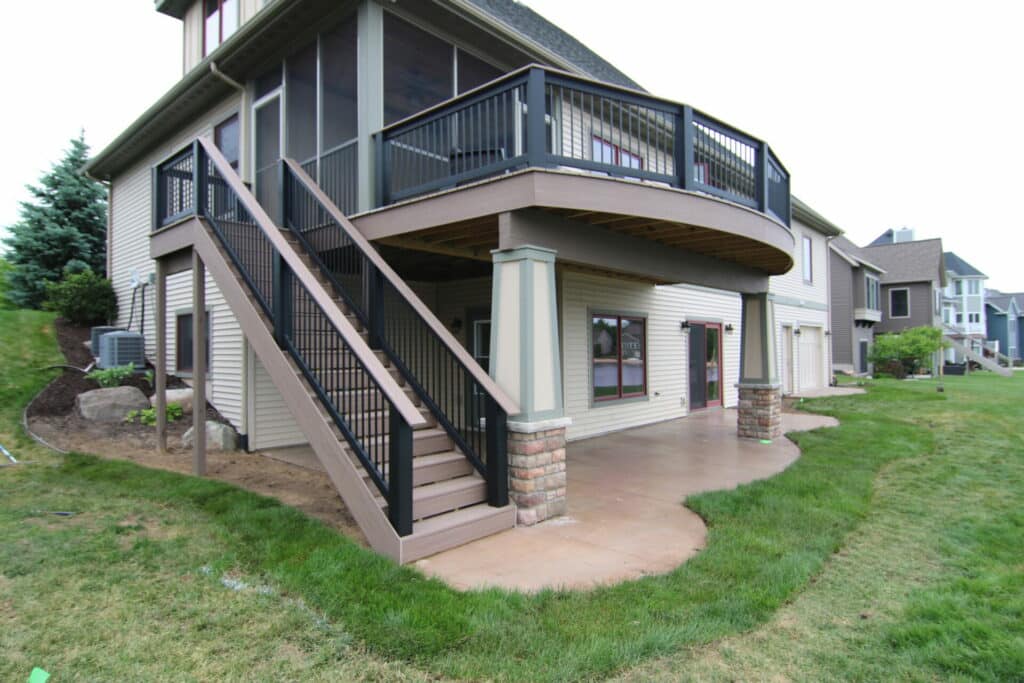How Long Do Wood Decks Last?
Wood decks offer timeless beauty and a natural charm that enhances outdoor space. However, understanding how long wood decks last is crucial for homeowners seeking to maximize their investment. Factors like wood type, construction quality, and maintenance play significant roles in deck longevity.
At Precision Decks & Patios, we help you make informed choices, ensuring your wood deck stands the test of time, adding lasting value and enjoyment to your home.
Factors Affecting Wood Deck Lifespan
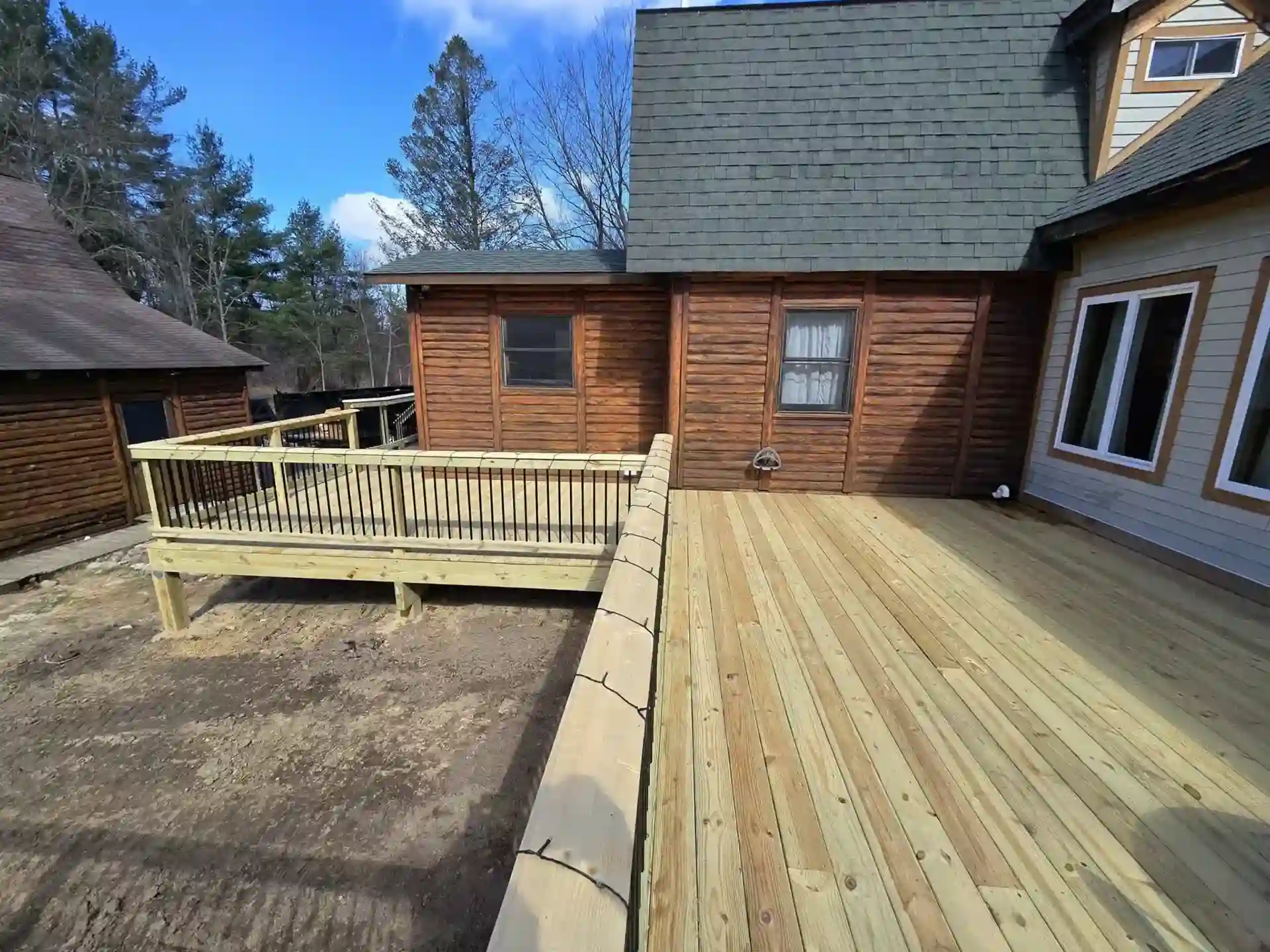
Understanding what influences the lifespan of a wooden deck is essential for homeowners who want to make the most of their investment. Several key factors determine how long your deck will last and how much maintenance it will require.
- Type of Wood Used: The type of wood you choose is crucial. While affordable, pressure-treated lumber requires regular maintenance and has a shorter lifespan than hardwoods like Ipe, which can last decades with minimal care. Cedar and redwood offer natural resistance to rot but also need consistent upkeep.
- Quality of Construction and Installation: Proper installation is vital for a durable deck. A well-constructed deck with secure boards and strong support structures will better withstand the elements, reducing the risk of issues like water damage and structural instability.
- Local Climate and Weather Conditions: Climate affects deck longevity. Our humid summers can accelerate rot and mold, and our harsh winters can cause wood decks to expand, contract, and crack, leading to potential structural issues.
- Level of Maintenance and Care: Regular maintenance, including cleaning, sealing, and inspecting for insect damage, is essential for extending your deck’s lifespan. Even the most durable wood can deteriorate quickly without proper care, leading to costly repairs or replacement.
Popular Choices for Natural Wood Decks
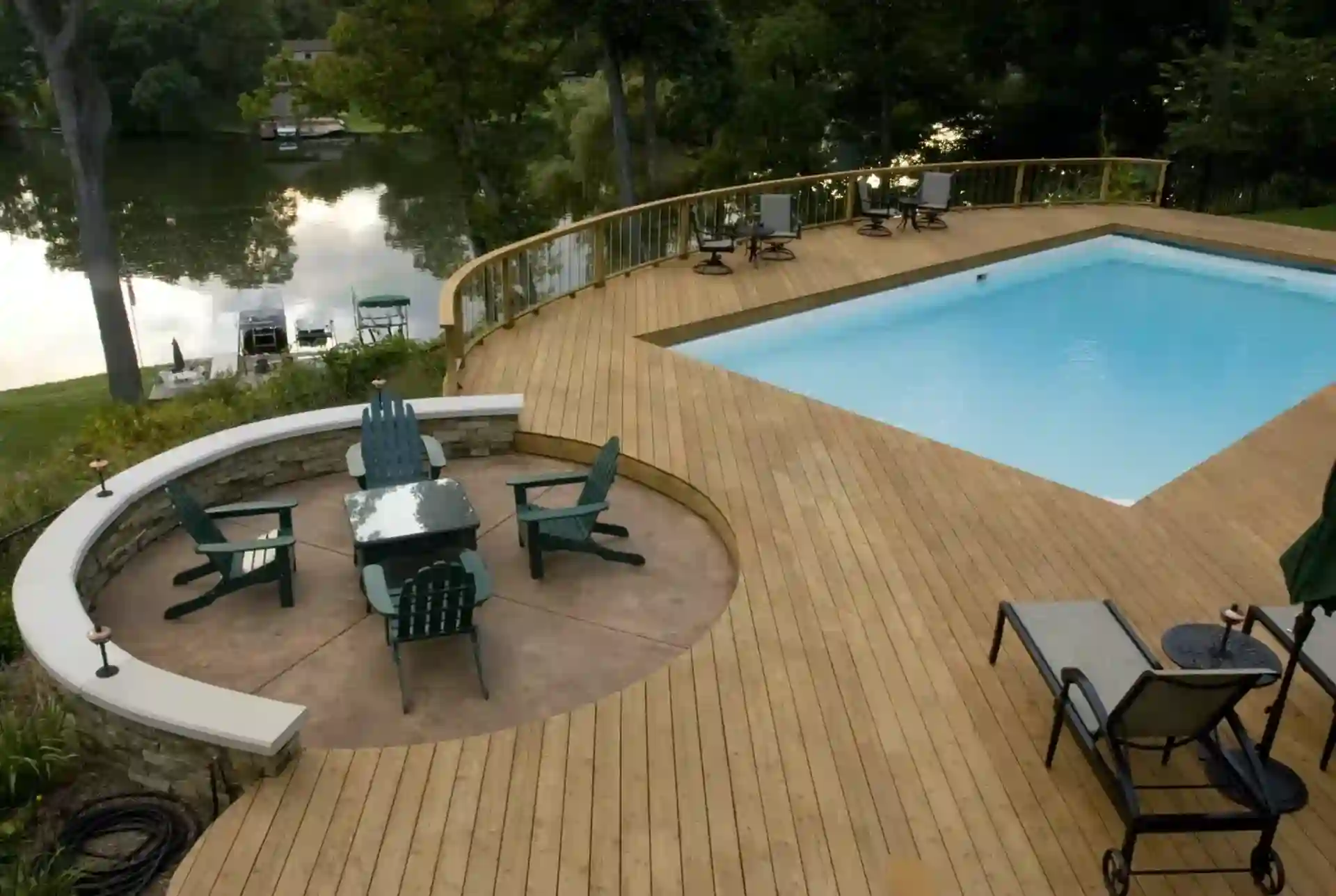
Natural wood decks, whether made from softwoods or hardwoods, offer homeowners the classic beauty and warmth of real wood. However, understanding the differences between these types of wood and their maintenance needs is crucial to ensuring a long-lasting deck.
- Common Woods Used: Natural wood decking includes pressure-treated pine, cedar, redwood, and Ipe. Pressure-treated lumber is popular for its cost-effectiveness and decay resistance, while cedar and redwood are chosen for their natural beauty and rot resistance. Ipe, a hardwood, is known for its exceptional durability and natural resistance to rot, insects, and water damage.
- Pros: Natural wood decks provide a wide range of customization options, from staining to unique designs, making them a favorite for those who appreciate the look and feel of real wood. Softwoods like cedar and redwood are more affordable and widely available, while Ipe offers superior durability with minimal maintenance.
- Cons: Softwoods, while cost-effective, are less durable and more prone to warping, splitting, and insect damage than hardwoods. Although highly durable, ipe, comes with a higher initial cost and can be harder to source sustainably. To prevent deterioration, all natural wood decks require regular maintenance, including sealing and protection against moisture.
- Average Lifespan: With proper care, softwood decks like cedar and redwood can last 10 to 20 years, while Ipe decks can last around 25 years or more. Regular maintenance, including cleaning, sealing, and inspections, is essential to extend the lifespan of any natural wood deck.
Maintenance and Care Required for Wood Decks
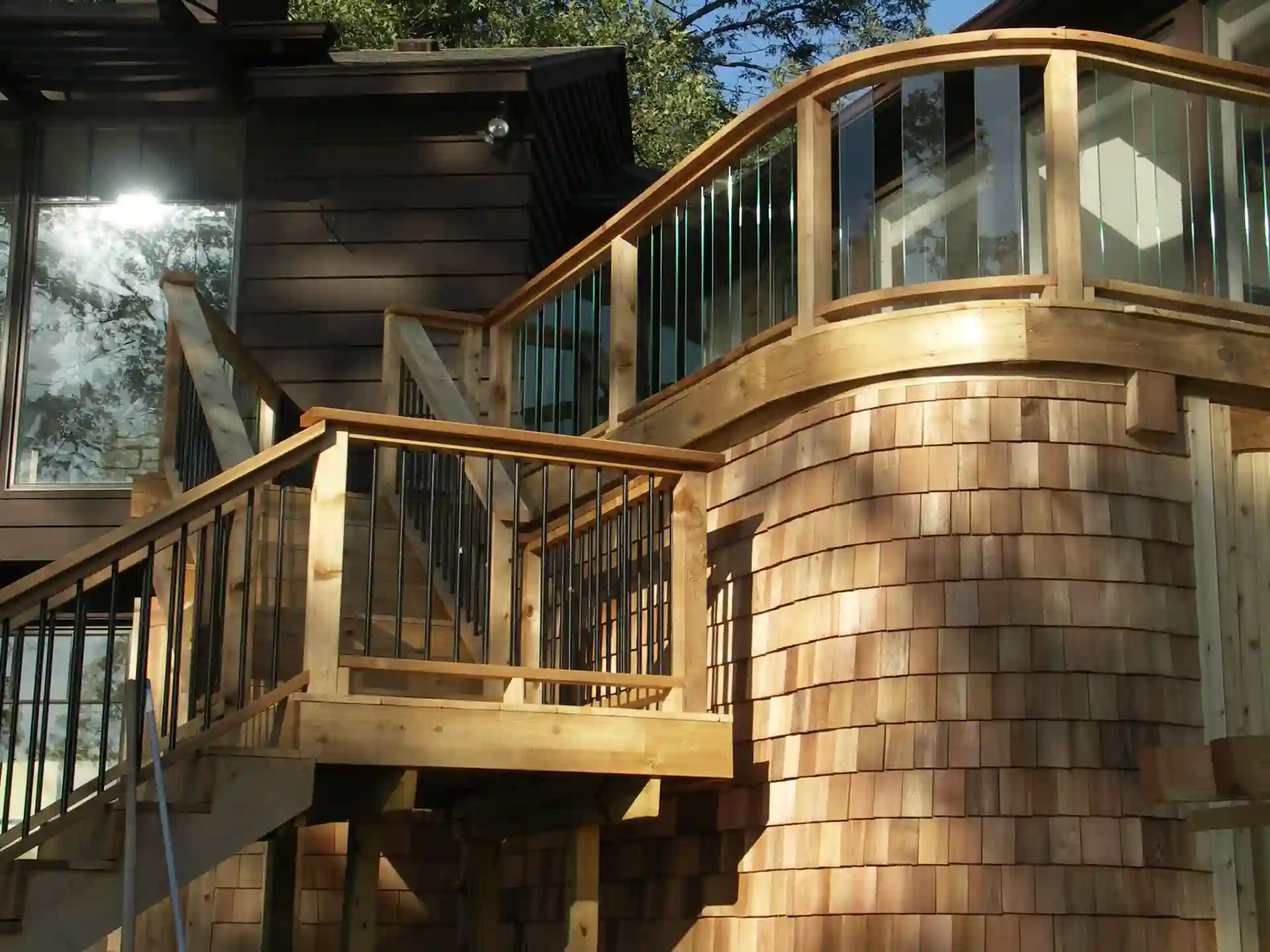
Proper maintenance is critical to extending the life of your wood deck and keeping it looking its best. Regular upkeep preserves the deck’s appearance and protects it from damage that can lead to costly repairs.
- Regular Cleaning and Sweeping: Keeping your deck surface clean is crucial. Regularly sweep away leaves, dirt, and debris to prevent moisture buildup, which can lead to mold and rot. A clean deck also deters pests that can cause damage.
- Seasonal Maintenance Tips: Seasonal care ensures your deck withstands the elements year-round. Inspect and clean your deck in spring, and consider applying a fresh coat of stain or sealant to protect against summer sun and rain. In winter, remove snow promptly to prevent moisture damage, and avoid using ice-melting products that can harm the wood.
- Common Maintenance Mistakes to Avoid: Avoid using a pressure washer on high settings, as this can damage the wood fibers. Also, be cautious with cleaning products; harsh chemicals can strip away protective coatings and lead to faster deterioration.
- Impact of Proper Maintenance on Deck Lifespan: Consistent maintenance can significantly extend the lifespan of both softwood and hardwood decks. Regularly cleaning, sealing, and inspecting your deck can prevent minor issues from becoming major problems, ensuring your deck remains safe, beautiful, and functional for years to come.
When Building a Wood Deck, Look at These Cost Considerations
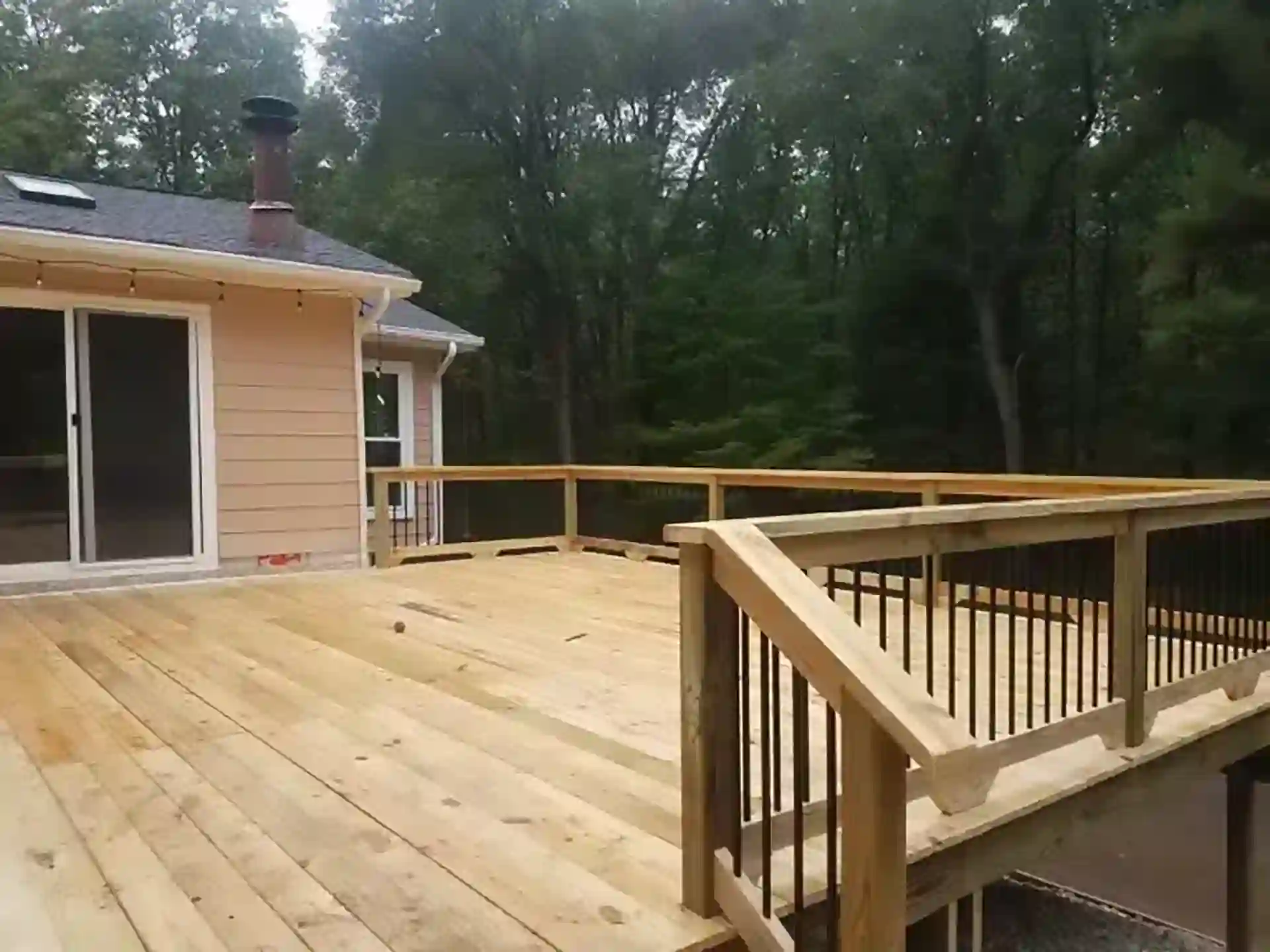
Understanding the costs of building and maintaining a wood deck helps homeowners make informed decisions that align with their budget and long-term goals. Balancing upfront investment with ongoing maintenance is crucial for getting the most value from your deck.
- Initial Installation Costs vs. Long-Term Maintenance Expenses: Wood decks generally have lower initial costs than alternatives like composite decks. Softwood options, such as pressure-treated lumber, are the most affordable, while hardwoods like Ipe come with a higher price tag due to their durability and longevity. However, wood decks require regular maintenance, including cleaning, sealing, and occasional repairs, which adds to the long-term expense. Composite decking materials, while more expensive upfront, often have lower maintenance costs over time.
- Value Added to Property: A well-maintained wood deck can significantly enhance the value of your home. Natural wood offers a timeless appeal that many buyers find attractive, making your property more desirable if you decide to sell. A beautiful, long-lasting deck’s aesthetic and functional benefits often outweigh the maintenance costs, providing a solid return on investment.
- Comparison Chart: Visual comparisons between different decking options, such as softwood vs. hardwood and natural wood vs. composite materials, can help homeowners quickly assess the trade-offs in cost, maintenance, and lifespan. This helps make an informed decision that suits budget and lifestyle needs.
Ready for a Wood Deck? Composite Deck? Precision Decks & Patios is Ready to Help
As you consider how long a wood deck lasts, do you have a particular one you want to use for your deck project? Would you rather choose a composite material? Whatever your perfect deck design looks like, Precision Decks & Patios can help you make it a reality. Contact us for a free design consultation.


